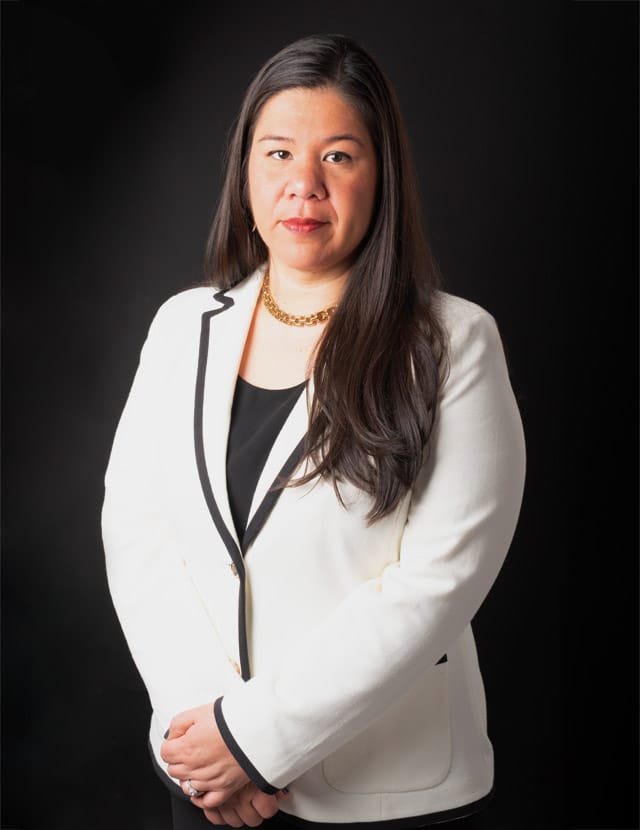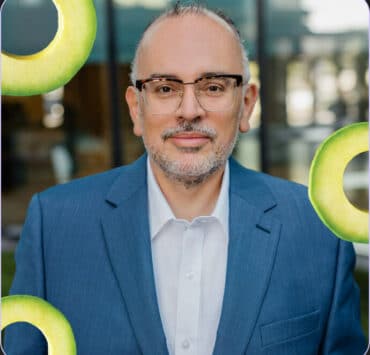|
Getting your Trinity Audio player ready...
|
Mónica Ramírez walked into the newspaper office of her Ohio hometown at the age of fourteen with a question for the editor. The paper had just done a full-page story welcoming back the seasonal fishermen who would arrive every June like clockwork. So why was there no welcome story for the migrant farmworkers who arrived at the same time to work the fields and prepare the land for a fall harvest?
“To his credit, the editor said it just wasn’t something he’d thought about, and he encouraged me to go out and write about it,” Ramírez says. “I’m grateful now because he could have just shooed me out and who knows what I’d be doing today. But that newspaper beat gave me the chance to start writing about farmworkers and the Latino community at the age of fourteen.”
That story is a perfect example of the casual indifference faced by so many communities in the US and of Ramírez’s passion and drive to share the experiences of those whose stories aren’t told.
Ramírez is an activist, a civil rights attorney, an author, a builder, and a storyteller. She has created or been a partner in the creation of organizations that shine a light on the plight and struggle of Latinos. Justice for Migrant Women, Esperanza: The Immigrant Women’s Legal Initiative, the award-winning Bandana Project, Alianza Nacional de Campesinas, and most recently, both the The LatinX House and Poderistas have all focused on Latinas and migrants, how they are viewed by the larger public, and how to celebrate, support, and advocate for a population that is often forced to exist in the shadows.

The proud advocate has won countless awards for her work, her presence was requested at the 75th Golden Globe Awards by the actress Laura Dern, and her public letters, including the “Dear Sisters” letter that helped spark the Time’s Up movement, have been read by millions of people across the world.
“If there’s one person who doesn’t seem to give these distinctions any thought whatsoever,” the adage goes, but in this case it’s simply the truth. Ramírez has dedicated her life to serving and advocating for people she grew up around, people like her parents’ families who spent most of their lives traveling the migrant stream starting in Texas and working their way around the US. Ramírez’s father started working when he was eight and her mother when she was five.
“Growing up, I didn’t understand the problems of migrant workers because the community I saw was so beautiful,” Ramírez says. “I’d see all of these people at church on Sunday, and they just felt like my family. They were my family. It wasn’t until I started asking my parents questions that I began to see the bigger picture.”
Ramírez began to understand the joy she saw in her community was undercut by pain, turmoil, and a system that, at best, ignored them and, at worst, did its absolute best to ensure they stayed poor, mistreated, and forgotten by society.
All these years later, Ramírez says the results of her work and the work of countless others is still mixed. She doesn’t say this with sadness or frustration. If you dedicate your life to service, she says, you cannot assume the change you desire will take place during your lifetime. It’s not about deriving some personal feeling of accomplishment; it’s about making the lives of the people around you better.
Latina Equal Pay Day still recognizes the gross disparity in the ability of Latinas to approach anything resembling economic parity. Despite a presidential regime change that promised different outcomes than putting humans in cages at the US-Mexico border, the Biden administration has quietly carried out largely the same policy of his predecessor, albeit one much more forgiving by the broader media narrative.
“For those who want to begin a life in activism, it’s a huge responsibility. . . . Every step forward is progress for the larger movement.”
Mónica Ramírez
At times, Ramírez sees some aspects of the fight as worse off than when she started. But twenty years in, she has done so much good, and she believes there are others ready to do the same.
“For those who want to begin a life in activism, it’s a huge responsibility,” Ramírez says. “But if you allow yourself to get overwhelmed by that responsibility, nothing you do seems like enough. You have to start small. Every step forward is progress for the larger movement. It’s never just about you. It’s about what we can do together. You can’t put all of that pressure on yourself.”
At present, Ramírez is doing her best work to try and help the US reframe the way it defines “rural America.” The Rural Civic Engagement Initiative is highlighting the fact that 19 million people of many diverse backgrounds live and work in the often white-washed “rural USA.” Those women often “live in poverty, face persistent inequality, and lack the services and the protections that they need to live healthy and whole lives,” according to the initiative’s website.
The initiative is conducting outreach efforts to those women to create a voting bloc that can advocate for their rights as women, as Americans, and as human beings. The initiative is also focusing on ways to build local power across communities, like encouraging members to run for local elections, positions that can make huge impacts in small communities.
At this moment, this is where Ramírez is focused, but she is always being pulled in multiple directions at once. Making the lives of migrant workers, Latinas, people of color, and other minorities require approaching the roots of problems from every conceivable angle. It’s hard work. It can be incredibly dispiriting. But it can, and will, change the world.
The Continuing Battle for Latina Equal Pay
Every October 5 in the US, we commemorate one of the more shameful milestones of our current reality. Latina Equal Pay Day shines a light on the fact that for full-time, year-round workers, Latinas earn fifty-seven cents for every dollar a white, non-Hispanic man earns.
The culprit? Everything from citizenship status to an overrepresentation in industries lacking even the most fundamental of workplace protections. That means Latinas are not only more often the victim of wage theft but also sexual harassment and other injustices no one should have to endure for the sake of earning a living.
“This has been a movement that we need to see continued support and passion for,” Mónica Ramírez explains. “We can’t forget about this disparity, or it will just keep getting worse.”
Learn more about how you can be part of the solution at justice4women.org/latina-equal-pay.

